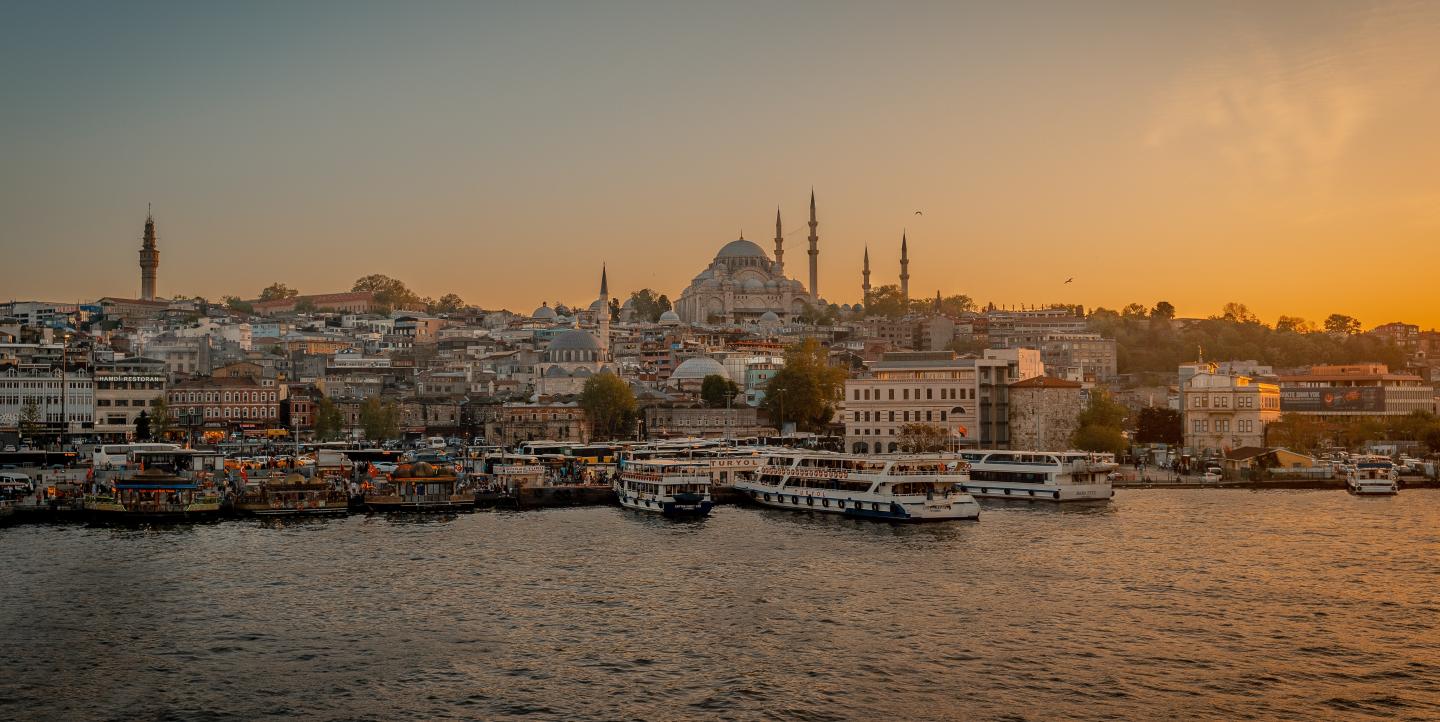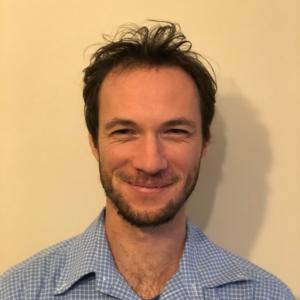From 2014 to 2017, award-winning Russian journalist Vladimir Sokolov worked for the now-closed liberal radio station, Echo of Moscow. Based out of the city of Perm near the Ural mountains while at Echo of Moscow, Sokolov tracked developments in audio reporting and interviewed journalism experts about censorship issues, content quality and editorial independence.
Although independent media in Russia at this time was able to operate with a greater degree of freedom than before the country’s full-scale invasion of Ukraine in February 2022, the media infrastructure was still vulnerable to political malfeasance.
Sokolov and his colleague and wife Anastasia Sechina left Echo of Moscow after a Russian parliament member bought the station’s Perm branch. They went on to launch The Fourth Sector in 2018, a regional media project that would later win the equivalent of Russia’s Pulitzer Prize, the Redkollegia. In 2021, after winning the award, the Russian government labeled The Fourth Sector a foreign agent, a designation also given to prominent independent media outlet Novaya Gazeta and the Nobel Prize-winning rights group, Memorial, among others.
Russia launched its full-scale war on Ukraine a year later, and Sokolov and Sechina, like many other independent journalists, fled to Turkey. “Initially, we thought of going to Europe, but we didn’t have a Schengen visa,” Sokolov said. “Turkey could be a temporary transit, and flight ticket prices were increasing exponentially.”
A combination of geographical proximity, logistical convenience, access to journalistic resources and a relatively freer media environment has turned Turkey into an oasis for anti-war and dissident Russians over the last year. While in Turkey, they can delay mandatory military conscription back home, while continuing to cover local and national Russian news without fearing direct interference from the Kremlin.
The Russian diaspora
When journalists from independent Russian outlets TV Rain and Holod left for Turkey last year, they moved on to Europe within months, a path many others wished to follow at the time. However, many Russian citizens and journalists have since elected to stay in Turkey to avoid growing fears of Russophobia in Europe. In Latvia, for instance, authorities closed down TV Rain over an employee’s comments expressing sympathy for men conscripted into the Russian military.
Logistical issues also play a role in journalists’ decisions to remain in Turkey. “It is difficult for Russians to get an EU visa in Moscow or St. Petersburg, so Turkey has become the most popular destination to escape. It is better than Kazakhstan, or Armenia, where there is also a conflict,” said Kerim Has, a Russia analyst and an expert on Russia-Turkey relations based in Moscow. “Turkey is easy to reach for many Russians, as they can stay in Turkey without a visa for two months, and they can prolong their stay by applying for a residence permit.”
Sokolov and Sechina initially planned to use Turkey as a transit country, but in Istanbul they found a society conducive to their immediate plans. For example, the country is the only NATO member that did not impose sanctions against the Kremlin, making it more economically appealing for many Russians with economic ties back home.
The two were also able to utilize existing international solidarity networks of fellow journalists in Turkey and throughout Europe. In Istanbul, Baris Altintas, an advocate for exiled Russian journalists who works for the Media and Law Studies Association, supported Sokolov and Sechina during their relocation. Sokolov has also been invited to speak in Germany, and Sechina in the Czech Republic, where their hosts funded and provided short-term visas for the trips.
Reporting from exile
Today, it’s difficult for reporters to objectively cover Russian domestic policy in the midst of comprehensive media censorship. “If you are a Russian journalist of foreign policy you can criticize Western countries, sanctions and bypass the critical topics that can be unacceptable for the Kremlin,” said Has. “But for the journalists who write about Russian domestic policy, it is quite difficult.”
After resettling, Sokolov and Sechina relaunched The Fourth Sector from Turkey. They also helped create the Russian journalist’s resource toolbox, Gribnica (“Mycelium,” in Russian), which later closed due to the risks of exposure for its journalists. In May 2022, Sokolov helped launch Glush (“Silence,” in Russian, also a new term for eyes and ears), a secure database that aims to help newsrooms and nonprofit organizations find media workers.
Today, Sokolov is also developing a system in which journalists can find individual, person-to-person support during their resettlement in Turkey, such as helping with language or finding an apartment.
Navigating censorship and burnout
Exiled Russian journalists like Sokolov face the threat of persecution for as long as Putin is in power should they decide to return to Russia, said Igor Chelov, a political scientist who works for the International Press Institute’s Turkey mission in Ankara.
While in exile, it’s challenging to produce reporting that resonates with audiences in Russia in the face of censorship and propaganda. “It is imperative for Russian journalists in exile to find a way to communicate with their home audience,” Chelov said. “Even the most resonant investigative pieces failed to bring about change. Examples abound of stories that fail to pierce censorship and pro-Kremlin propaganda, from political corruption to ecological disasters, both on national and local scales.”
Ankara’s policies concerning the invasion of Ukraine, which have been less robustly in favor of arming Ukraine and sanctioning Russia than those of other NATO countries, have also been unmoved by the work of Russian journalists in Turkey, Has explained. “Of course, there are activities of Russian journalism in exile in Turkey, but frankly I have not seen a particular effect of Russian journalism in Turkey on Erdogan or Turkey-Russia relations,” he said.
Sokolov has experienced burnout due to these challenges. His belief in his reporting’s effectiveness has faltered especially after observing the inability of investigations carried out by the Anti-Corruption Foundation, a project of Russia’s opposition leader Alexi Navalny, to influence lasting political change – though they sparked protests across Russia.
“If that anti-corruption piece had no impact, what can we do from Turkey?” Sokolov asked, referring to the Anti-Corruption Foundation’s investigative documentary, ‘Don’t Call Him Dimon,’ which examined Prime Minister Dmitry Medvedev’s corruption. “After Putin goes, local, regional media in Russia must continue. We only have raw ideas to support journalists in and out of Russia. We need to create a directory of voluntary fixers. But the burnout is catching up with us.”
Photo by Ante Samarzija on Unsplash.


